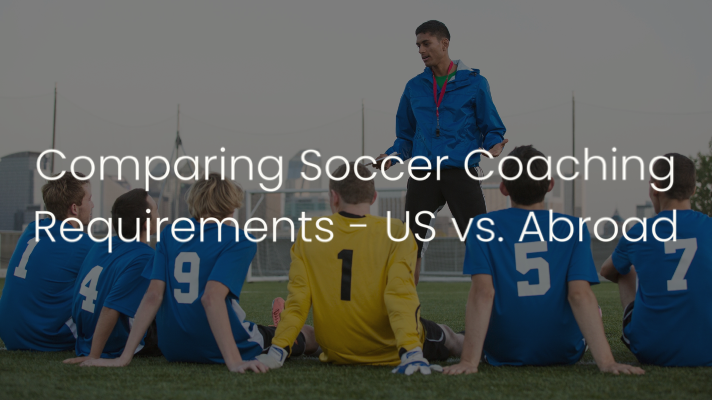Comparing Soccer Coaching Requirements - US vs. Abroad
Coaching soccer is a rewarding career that allows you to share your love of the game with young players and help them develop their skills. However, the path to becoming a licensed soccer coach can vary greatly depending on where you are in the world.
In the United States, soccer coaching licenses are overseen by the United States Soccer Federation (USSF). The USSF offers four levels of coaching licenses: the Grassroots, D, C, and B licenses. These licenses vary in their level of difficulty and the amount of time and effort required to obtain them.
To obtain a Grassroots license, coaches are required to complete a 2-hour online course and attend a 4-hour in-person course. The D license requires 36 hours of instruction, including a minimum of 16 hours of in-person instruction and 4 hours of field work. The C license requires 135 hours of instruction, including a minimum of 74 hours of in-person instruction and 20 hours of field work. The B license requires 150 hours of instruction, including a minimum of 90 hours of in-person instruction and 30 hours of field work.
In addition to completing the required coursework, coaches must also pass practical and written exams to obtain their licenses. These exams evaluate coaches on their ability to teach soccer skills and tactics, as well as their knowledge of the game's rules and regulations.
In contrast, the requirements for obtaining a coaching license abroad can vary greatly depending on the country and the level of coaching being pursued. In some countries, such as England and Germany, coaching licenses are overseen by national organizations that offer a range of levels, similar to the USSF.
However, in other countries, such as Brazil and Argentina, there are no formal coaching license requirements. Instead, coaching education is often provided through mentorship programs and practical experience.
One notable difference between coaching requirements in the US and abroad is the level of emphasis placed on practical experience. In the US, coaches are required to complete a significant amount of in-person instruction and field work before obtaining a license. This ensures that coaches have a strong foundation in both the theory and practice of coaching.
In many other countries, however, the emphasis is on practical experience rather than coursework. Coaches often learn through apprenticeships with more experienced coaches, allowing them to gain hands-on experience working with players and developing their coaching skills.
Another difference between coaching requirements in the US and abroad is the level of standardization. In the US, coaching licenses are overseen by a single national organization, ensuring that all coaches meet the same standards and requirements.
In other countries, however, coaching requirements can vary widely between different organizations and regions. This can make it more difficult for coaches to know what is expected of them and can lead to inconsistencies in the quality of coaching.
Despite these differences, the goal of coaching soccer is the same across the world: to help young players develop their skills and love of the game. Whether you are pursuing a coaching license in the US or abroad, the most important qualities for a coach are a passion for the game, a commitment to learning and improving, and a love of teaching and working with young players.
Learn more about some differences Jürgen experienced in the video below!


